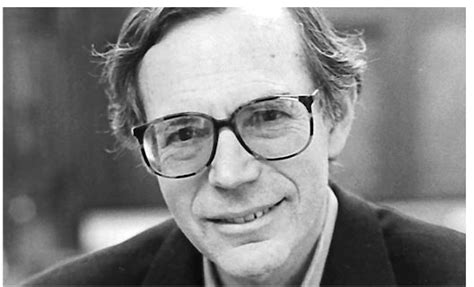Eric Foner Historian

Eric Foner, an esteemed American historian, has made significant contributions to the field of history, particularly in the areas of American political and social history. His extensive research and prolific writing have earned him a reputation as one of the most influential and respected historians of his generation.
A Distinguished Academic Career

Born in New York City in 1943, Eric Foner grew up surrounded by a deep appreciation for history. His father, Jack D. Foner, was a renowned historian and labor activist, who greatly influenced Eric’s early interest in the subject. Foner’s academic journey began at Columbia University, where he earned his bachelor’s degree in history in 1963. He continued his studies at Oxford University as a Rhodes Scholar, before returning to Columbia for his doctoral studies, completing his Ph.D. in 1969.
Dr. Foner's academic career has been intertwined with Columbia University, where he has spent most of his professional life. He began as an assistant professor in 1969 and has since risen through the ranks, becoming a full professor in 1977. In 2000, he was appointed the DeWitt Clinton Professor of History, a position he holds to this day. Throughout his tenure at Columbia, Foner has mentored countless graduate students, many of whom have gone on to become prominent historians themselves.
Groundbreaking Historical Research and Writing

Eric Foner’s research focuses primarily on the political and social history of the United States, with a particular emphasis on the Civil War and Reconstruction eras. His work challenges traditional narratives and offers nuanced insights into the complex dynamics of American history. Foner’s approach is characterized by his ability to analyze historical events through the lens of social and cultural forces, providing a deeper understanding of the past.
One of Foner's most celebrated works is Reconstruction: America's Unfinished Revolution, 1863-1877, published in 1988. This comprehensive study of the post-Civil War era won numerous awards, including the Bancroft Prize and the Francis Parkman Prize. Foner argues that Reconstruction was a transformative period in American history, during which African Americans made significant strides toward equality, only to have their progress reversed by a resurgent white supremacy. This book has become a cornerstone of Reconstruction historiography and has shaped the way scholars understand this critical era.
In addition to his academic writing, Foner is a prolific author of popular history books, making complex historical topics accessible to a wider audience. His book The Fiery Trial: Abraham Lincoln and American Slavery, which won the Pulitzer Prize for History in 2011, offers a nuanced examination of Lincoln's evolving views on slavery and race. Foner's ability to engage readers with his clear and engaging writing style has earned him a reputation as a master storyteller of American history.
Awards and Recognition
Eric Foner’s contributions to the field of history have been widely recognized by his peers and the academic community. He has received numerous prestigious awards, including the Bancroft Prize (1989), the Pulitzer Prize for History (2011), and the Lincoln Prize (2011). In 2014, he was awarded the National Humanities Medal by President Barack Obama, honoring his “groundbreaking scholarship on the Reconstruction era and its ongoing relevance to our nation’s civic life.”
Foner has also been recognized for his commitment to teaching and mentoring. He has received the Columbia University Great Teacher Award and the American Historical Association's Eugene Asher Distinguished Teaching Award, which acknowledges his exceptional contributions to historical pedagogy.
Influential Perspectives on American History
Eric Foner’s work has had a profound impact on the way American history is understood and taught. His focus on the agency of marginalized groups, such as African Americans and women, has brought new dimensions to historical narratives. Foner argues that a complete understanding of American history requires an appreciation of the diverse experiences and perspectives of all its citizens, not just those in power.
In his book Who Owns History?: Rethinking the Past in a Changing World, Foner explores the complex relationship between history and memory, arguing that history is a dynamic and contested field. He challenges the idea of a single, objective historical narrative, advocating instead for a more inclusive and nuanced approach that accounts for the multiplicity of voices and experiences.
Foner's work has also engaged with contemporary issues, offering historical perspectives on topics such as race, immigration, and political polarization. His public lectures and media appearances have made him a prominent public intellectual, providing insightful commentary on the relevance of history to current affairs.
Conclusion

Eric Foner’s scholarly contributions and dedication to teaching have solidified his place as one of the preeminent historians of the modern era. Through his meticulous research, engaging writing, and thought-provoking perspectives, Foner has shaped the way we understand and interpret American history. His work continues to inspire and educate, leaving an indelible mark on the field of history and beyond.
What is Eric Foner’s most acclaimed work?
+Eric Foner’s most acclaimed work is widely considered to be Reconstruction: America’s Unfinished Revolution, 1863-1877, which won multiple awards and revolutionized the understanding of the post-Civil War era.
How has Foner’s work influenced the teaching of American history?
+Foner’s emphasis on the agency of marginalized groups and his challenge to traditional historical narratives have encouraged a more inclusive and nuanced approach to teaching American history.
What are some of Foner’s other notable books?
+In addition to Reconstruction, Foner’s notable works include The Fiery Trial: Abraham Lincoln and American Slavery, Who Owns History?: Rethinking the Past in a Changing World, and Gateway to Freedom: The Hidden History of the Underground Railroad.


